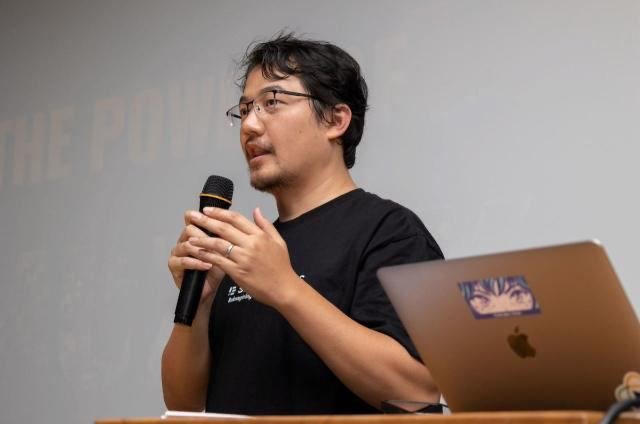Original Title: "Delisted by Google Play at 200 Million Users, Dolphin Browser Co-Founders Discovered Decentralization"
Author: Amanda Smith, Decential
Translation: Elvin, ChainCatcher
University friends Joey Yu and Mason Yang are a success story in Silicon Valley. They left the then-largest tech company, Microsoft, to create Dolphin Browser - one of the first alternative browsers for Android, which had over 200 million users at its peak. Then, without any warning, it was delisted from the Google Play store.
"One morning I woke up to thousands of complaint emails and comments saying Dolphin Browser had disappeared," Yu said in a recent interview. "We didn't know what had happened. Weeks later, Google Chrome was introduced to Android. Prior to that, Android only had the native browser. They delisted all third-party browsers with significant innovations. Google and Apple have killed many innovative startups. For example, iCloud is a copy of Dropbox."
When users, bloggers, influencers, journalists, and editors rallied behind Dolphin Browser, Google's former motto "Don't be evil" backfired on them. The most memorable article was published by CNET, mocking Google for being evil because it took down their favorite browser.
"Finally, Google contacted us, saying we could resubmit a new application, but the old application had disappeared. Users would need to uninstall the old app and reinstall the new app, so all bookmarks and information would be lost," Yu said. But Dolphin Browser was not sent to the graveyard of large tech companies. It found its super fans, and the community helped the app make a comeback. They were able to regain their user base within a year.
While Dolphin Browser's technology was innovative at the time - it was the first Android browser optimized for mobile screen sizes and offered multi-touch zoom - it was the community that made it stand out. They even had hints of decentralized autonomous organization (DAO) before DAO appeared, including feature requests, community voting, and reward mechanisms.
Yu still noticed that large tech companies were swallowing startups and eventually decided to sell Dolphin Browser. "Every year, we see the top three or four popular apps disappear, so Google or Android can become the default operating system. Tech giants control everything. Without their knowledge, tech giants grab your good idea and profit from all user data," he said.
This was the time Ethereum was invented. After Google's collapse, Yu experienced the power of the community firsthand and eventually became open to the potential of decentralization.

Early Interaction with Vitalik Buterin
In 2015, Yu was introduced to Ethereum co-founder Vitalik Buterin, when Ethereum was referred to as "a new Bitcoin" at the time. Buterin gave Yu a few ideas - one was to build a decentralized web browser, similar to today's Brave, and the other was decentralized naming services, such as ENS Domains. Although Yu did not accept Buterin's ideas, it further connected the opportunities of blockchain technology with his background.
He spent some time building and investing in various projects. During this time, the web3 world had matured. "From 2015 to 2017, it was about air coins. From 2017 to 2019, it was about infrastructure, layer two, and zero knowledge. 2019 was the summer of DeFi, NFT, and GameFi. In 2020, we had a feeling that this was similar to the evolution of phones, from Nokia to iPhone," he said.
Yu noticed pain points about user experience or the lack thereof. As a tech geek, even Yu found it difficult to use MetaMask. His first idea was a universal chat experience - a wallet address that could chat with anyone, from any terminal, whether it's a webpage, wallet, or game.
"Web3 is like a virtual society," Yu said. "Previous blockchains were more like a banking system. You have money, but no carrier. We want to connect your mouse to your pocket. If I want to send you 1 ETH, you can send me your wallet address in Telegram, and then I will open MetaMask to send you 0.1 ETH, check if you received it, and then send the rest. If you miss a message, the money is gone. The user experience is very fragmented."
SendingMe is Yu's web3 startup, a decentralized real-time encrypted instant messaging platform that integrates chat, social, and trading. It facilitates the direct transfer of tokens and NFTs within chats.
Many experiences of SendingMe came from Dolphin Browser, such as the power of the community, building an open ecosystem, and embedding third-party applications. He said it is also a ready-made communication tool for web3 teams, which are typically smaller in scale and lack resources for user experience.
Yu describes SendingMe and SendingNetwork as "carriers of the people."
"Think of it as a network carrier, similar to how Starlink operates with physical satellites, but in our case, we are creating virtual satellites," he said. "Imagine if anyone could turn their server or laptop into a signal station by installing an application. This would turn every device into a node, similar to a communication tower."
He continued, "The beauty of this system lies in its resilience and decentralization. With numerous nodes distributed in different locations, it's almost impossible for anyone to shut down the entire network, censor specific messages, ban user accounts, or exclude entire communities. Essentially, each user contributes to a powerful, unbreakable communication network."
No censorship, banning of accounts, or exclusion of communities.
As more and more Silicon Valley builders turn to decentralized environments, tired of commodified creators and users are uniting to support builders and brands, leading the digital rights of the new internet.
免责声明:本文章仅代表作者个人观点,不代表本平台的立场和观点。本文章仅供信息分享,不构成对任何人的任何投资建议。用户与作者之间的任何争议,与本平台无关。如网页中刊载的文章或图片涉及侵权,请提供相关的权利证明和身份证明发送邮件到support@aicoin.com,本平台相关工作人员将会进行核查。



